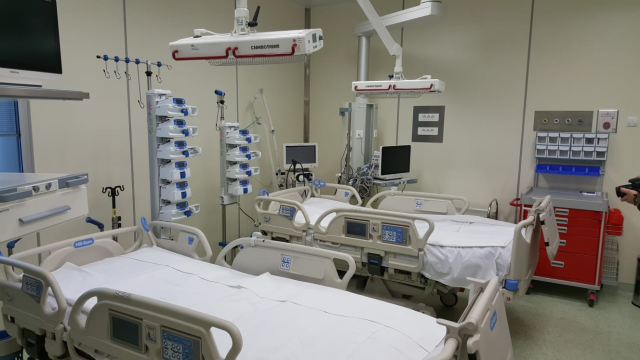The city of Iasi (in northeastern Romania) saw the inauguration of a clinic for patients with severe burns. The clinic will operate in a 260-year old building that has been refurbished from scratch. The inauguration was also attended by the acting health minister Sorina Pintea, who also referred to the center opened in Timisoara (western Romania) last week.
Sorina Pintea: “Every time I see something new, I feel like saying that it is more beautiful than what I have seen before. Indeed, it is larger and more spacious than the one in Timisoara. As regards equipment, it is identical with that in Timisoara but the challenge was even bigger as the clinic is hosted in a historical building that has been so nicely refurbished. All circuits have been respected, there are air filters in the wards for the people with very severe burns. We needed indeed a clinic for severe burns.”
The clinic will seat 20 patients and it is equipped with state-of-the-art technology. The entire medical staff of this clinic, that is about 100 people, have attended 3 training courses in France. The costs for refurbishment works and equipment stand at around 10 million Euros and the clinic was designed and equipped so as to provide treatment for any type of burns, said Ioan Bârliba the manager of the clinic in Iasi.
Ioan Bârliba: “The clinic can accommodate 20 patients. We have 5 big boxes for the patients with severe burns, 10 beds for patients with small and medium burns involving less than 20% of their body and 5 beds for intensive care. The clinic has its own ventilation and air conditioning systems, its own generator and oxygen supply system. All beds are custom-made, being equipped with burn-care equipment.”
The first steps for setting up this clinic were taken 7 years ago, and in the last 2 years the focus has been on purchasing the equipment. So far, the patients with severe burns have been sent to Bucharest or have been treated in improvised areas.
According to another project signed this week in Bucharest, about 9 thousand employees in the emergency care domain will benefit, in the next 3 years, from training with Romanian and foreign experts in relation to how to manage and intervene in critical situations. The project is worth almost 11 million Euros and the acting minister for European funds Roxana Mânzatu has underlined that it is for the first time when European funds are used for training the rescuers.
In another development, the head of the Department for Emergency Situations, Raed Arafat, said that, together with the officials of the Ministry for European funds, he managed to increase the number of helicopters used for emergency interventions. All these things have been accomplished now, 4 years after the fire at the Bucharest-based club Colectiv which killed 65. (translation by L. Simion)
